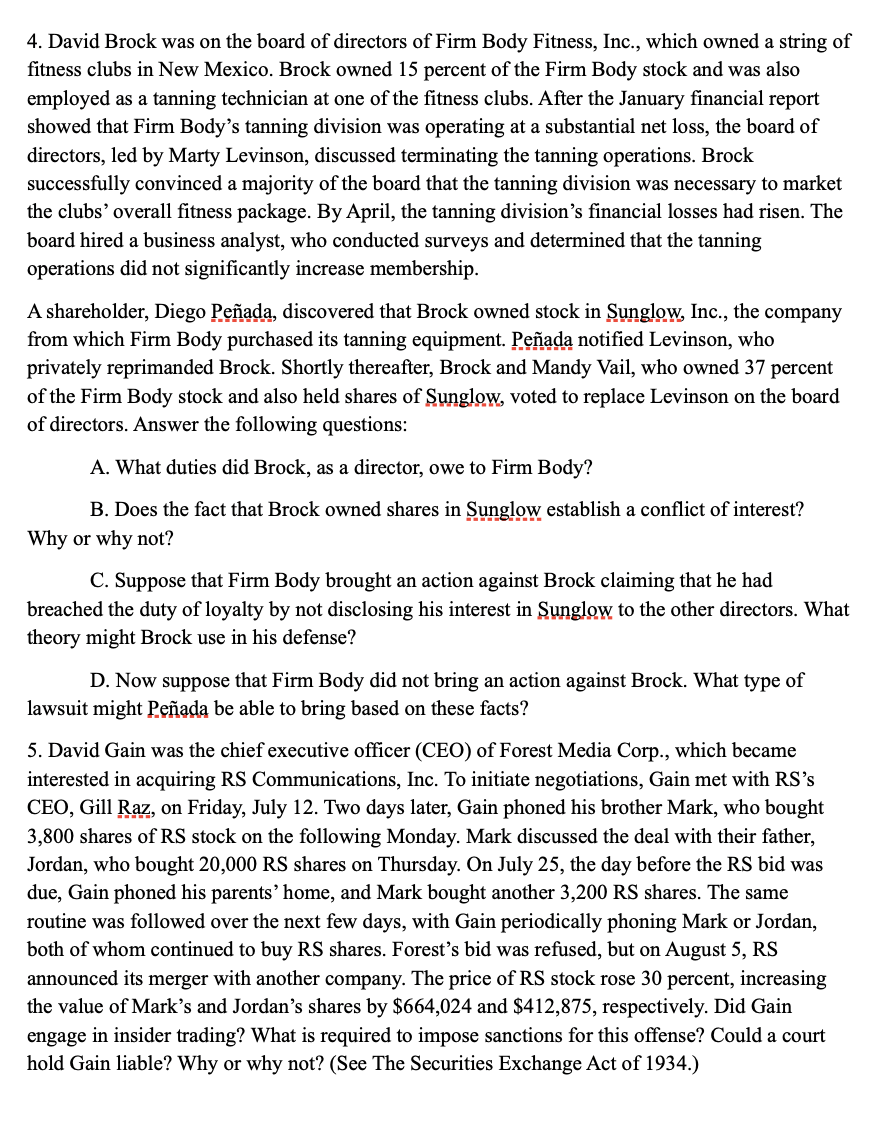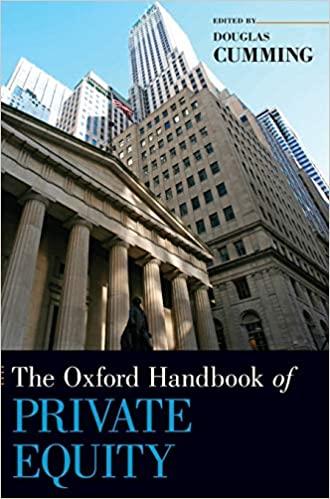Please cite the applicable laws when answering the question. 
4. David Brock was on the board of directors of Firm Body Fitness, Inc., which owned a string of fitness clubs in New Mexico. Brock owned 15 percent of the Firm Body stock and was also employed as a tanning technician at one of the fitness clubs. After the January financial report showed that Firm Body's tanning division was operating at a substantial net loss, the board of directors, led by Marty Levinson, discussed terminating the tanning operations. Brock successfully convinced a majority of the board that the tanning division was necessary to market the clubs' overall fitness package. By April, the tanning division's financial losses had risen. The board hired a business analyst, who conducted surveys and determined that the tanning operations did not significantly increase membership. A shareholder, Diego Peada, discovered that Brock owned stock in Sunglow, Inc., the company from which Firm Body purchased its tanning equipment. Peada notified Levinson, who privately reprimanded Brock. Shortly thereafter, Brock and Mandy Vail, who owned 37 percent of the Firm Body stock and also held shares of Sunglow, voted to replace Levinson on the board of directors. Answer the following questions: A. What duties did Brock, as a director, owe to Firm Body? B. Does the fact that Brock owned shares in Sunglow establish a conflict of interest? Why or why not? C. Suppose that Firm Body brought an action against Brock claiming that he had breached the duty of loyalty by not disclosing his interest in Sunglow to the other directors. What theory might Brock use in his defense? D. Now suppose that Firm Body did not bring an action against Brock. What type of lawsuit might Peada be able to bring based on these facts? 5. David Gain was the chief executive officer (CEO) of Forest Media Corp., which became interested in acquiring RS Communications, Inc. To initiate negotiations, Gain met with RS's CEO, Gill Raz, on Friday, July 12. Two days later, Gain phoned his brother Mark, who bought 3,800 shares of RS stock on the following Monday. Mark discussed the deal with their father, Jordan, who bought 20,000 RS shares on Thursday. On July 25 , the day before the RS bid was due, Gain phoned his parents' home, and Mark bought another 3,200 RS shares. The same routine was followed over the next few days, with Gain periodically phoning Mark or Jordan, both of whom continued to buy RS shares. Forest's bid was refused, but on August 5, RS announced its merger with another company. The price of RS stock rose 30 percent, increasing the value of Mark's and Jordan's shares by $664,024 and $412,875, respectively. Did Gain engage in insider trading? What is required to impose sanctions for this offense? Could a court hold Gain liable? Why or why not? (See The Securities Exchange Act of 1934.)







